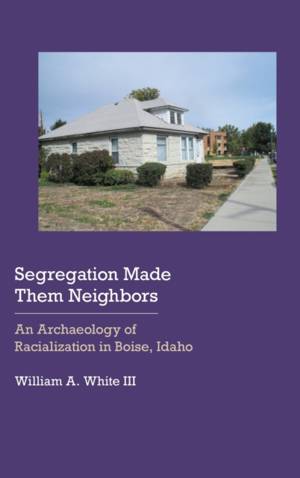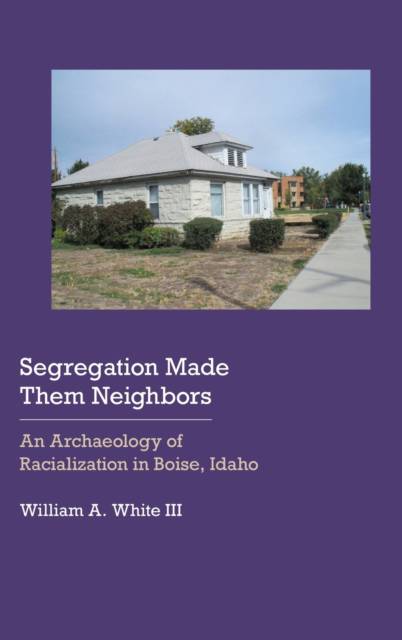
Door een staking bij bpost kan je online bestelling op dit moment iets langer onderweg zijn dan voorzien. Dringend iets nodig? Onze winkels ontvangen jou met open armen!
- Afhalen na 1 uur in een winkel met voorraad
- Gratis thuislevering in België vanaf € 30
- Ruim aanbod met 7 miljoen producten
Door een staking bij bpost kan je online bestelling op dit moment iets langer onderweg zijn dan voorzien. Dringend iets nodig? Onze winkels ontvangen jou met open armen!
- Afhalen na 1 uur in een winkel met voorraad
- Gratis thuislevering in België vanaf € 30
- Ruim aanbod met 7 miljoen producten
Zoeken
€ 127,45
+ 254 punten
Omschrijving
Segregation Made Them Neighbors investigates the relationship between whiteness and nonwhiteness through the lenses of landscapes and material culture. William A. White III uses data collected from a public archaeology and digital humanities project conducted in the River Street neighborhood in Boise, Idaho, to investigate the mechanisms used to divide local populations into racial categories. The River Street Neighborhood was a multiracial, multiethnic enclave in Boise that was inhabited by African American, European American, and Basque residents. Building on theoretical concepts from whiteness studies and critical race theory, this volume also explores the ways Boise's residents crafted segregated landscapes between the 1890s and 1960s to establish white and nonwhite geographies. White describes how housing, urban infrastructure, ethnicity, race, and employment served to delineate the River Street neighborhood into a nonwhite space, an activity that resulted in larger repercussions for other Boiseans. Using material culture excavated from the neighborhood, White describes how residents used mass-produced products to assert their humanity and subvert racial memes. By describing the effects of racial discrimination, real-estate redlining, and urban renewal on the preservation of historic properties in the River Street neighborhood, Segregation Made Them Neighbors illustrates the symbiotic mechanisms that also prevent equity and representation through historic preservation in other cities in the American West.
Specificaties
Betrokkenen
- Auteur(s):
- Uitgeverij:
Inhoud
- Aantal bladzijden:
- 234
- Taal:
- Engels
- Reeks:
Eigenschappen
- Productcode (EAN):
- 9781496217134
- Verschijningsdatum:
- 1/02/2023
- Uitvoering:
- Hardcover
- Formaat:
- Genaaid
- Afmetingen:
- 152 mm x 229 mm
- Gewicht:
- 512 g

Alleen bij Standaard Boekhandel
+ 254 punten op je klantenkaart van Standaard Boekhandel
Beoordelingen
We publiceren alleen reviews die voldoen aan de voorwaarden voor reviews. Bekijk onze voorwaarden voor reviews.











